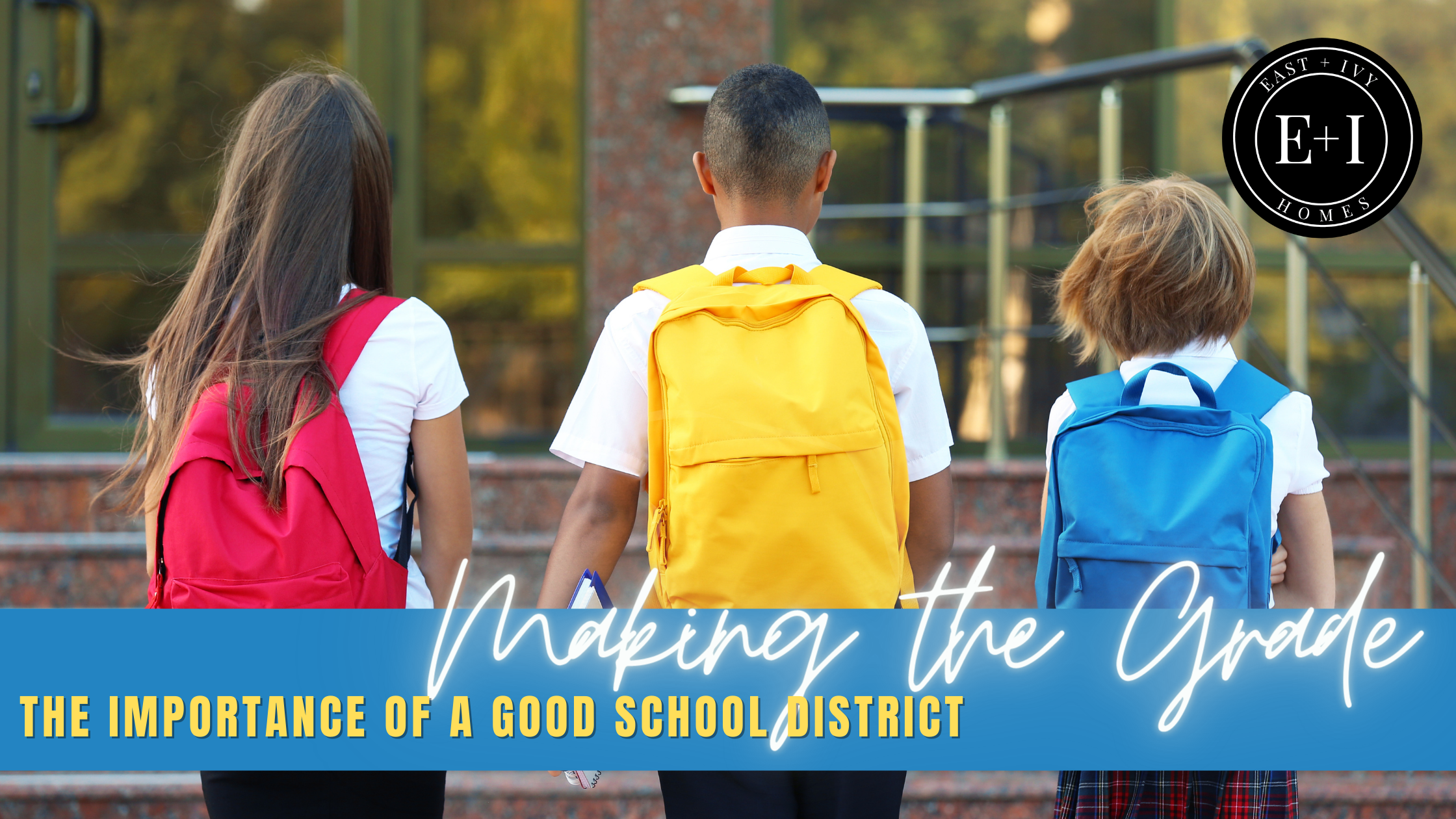Published August 17, 2021
Making the Grade: The Importance of a Good School District

Making the Grade: The Importance of a Good School District
Okay, so you’ve made the decision to buy a new home. You’re all about location, amenities, and your “dream home” list, but a good, public school district or good private schools in the area SHOULD be on your list as well, whether kids are in your life (or future) or not. It is back-to-school season, so let’s learn something, shall we?
Sorry, but I’m not adding to Earth’s population, so why do schools matter?
Great question! In short, better schools equal a more stable market, help preserve home values, and ensure fast resale rates. Higher resale prices and sometimes even lower school taxes are benefits to living in a great district as well. Furthermore, if there’s a great public school in the area that can equate to tons of pride and general support and community involvement, locally.
How do I know if the local district is “good”?
Good is a relative term, and if you don’t have kids and want specific options for them, like a great arts program, for example, you may be wondering what your criteria should be. There are a few rankings websites where you can learn more, like niche.com and greatschools.org; however, high school rankings don’t always equate to a great education, but they serve as a great starting point.
Here are some things to consider:
Graduation and drop-out rates- The goal of school is to produce good citizens that will contribute to society and to prepare students for the outside world. These two factors, graduation rate and drop-out rates, are a solid barometer for where to begin your school evaluation. If you’re shocked, you can keep scrolling through listings elsewhere.
Curriculum and philosophy- This is more important if you have kids, of course, as you want to find a school that fits the specific needs of your children. If your child has a learning disability, 504 plan, or IEP, you’d want to check out the special education services offered to ensure the resources needed for your child’s success are accessible. Some schools are moving to project-based learning and tossing the traditional textbooks. How is technology used in the school? What’s the discipline policy? What gifted programs or classes are offered? These are all questions that could be answered by touring the school or even just perusing the school website.
Extracurricular programs and activities- Offering a well-rounded education includes offering programs like STEM, the arts, athletics, and more. What programs are offered? Are there local connections or special programs, such as internships with local businesses or College-in-High School programs? Is there a technical school within the district or one that the district feeds into that supports the trades? Generally, the more programs offered typically equate to better schools. Extra programs are the first to go when there are budget cuts, so looking at these programs and their stability can help determine the quality of the school beyond test scores and rankings.
Demographics- Is the school diverse? Inclusive? Are teachers highly ranked and does the school retain its teachers? These are all questions that can usually be answered on Great Schools, Niche, or the individual school website. And if that specific school website doesn’t have easily accessible answers and appears to be transparent with its programs and policies, that could be a red-flag as well.
Test scores- My teacher friends would kill me if I didn’t put up the disclaimer that test scores are not everything, but they can serve as a good barometer. Looking at reading proficiency scores, math, and English scores can give you a general idea about the academics. Niche.com is the perfect resource for this information as well as the state’s department of education site. So, for Virginia, look up the Standards of Learning (SOL) scores on the Virginia Department of Education (VDOE) website (www.doe.virginia.edu).
Don’t forget about private and charter though!
While the majority of students do attend public schools, private (both secular and religious), magnet, charter, and virtual schools are all becoming more and more popular. Don’t forget to look these schools up as well and take them into consideration with the public school district. If you do have children, you may want to run a few scenarios with a smaller house in a good school district v. a larger house in a district with great private schools, adding that school tuition as a factor when you crunch your numbers.
If you don’t have kids, you still want to consider the rankings and performance of the private schools within the area, as those good schools can add to the resale value of your home and market stability. Homes in good districts typically sell much faster than homes in lower-quality school districts and tend to hold their value more than homes in lower-quality districts.
So, the next time you’re planning on buying a home, see if your potential future district makes the grade-- whether you have kids or not.





